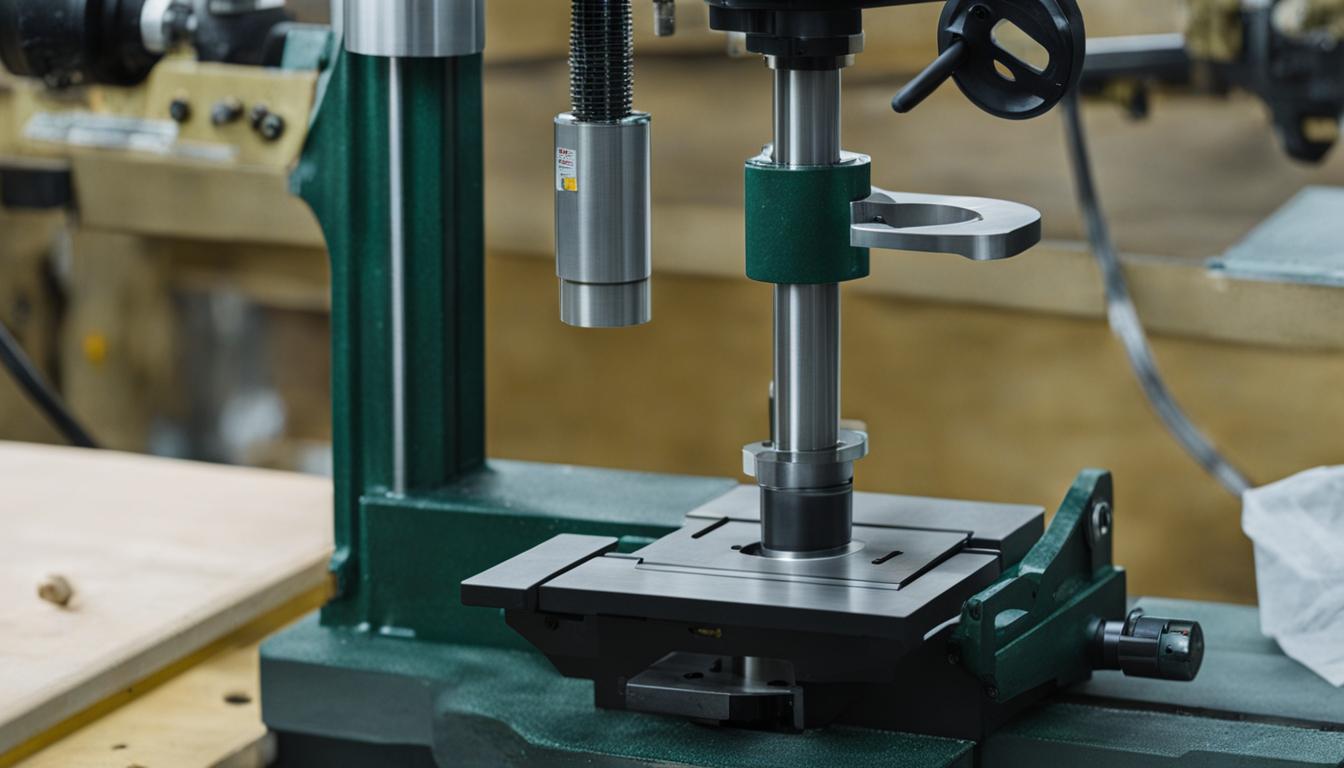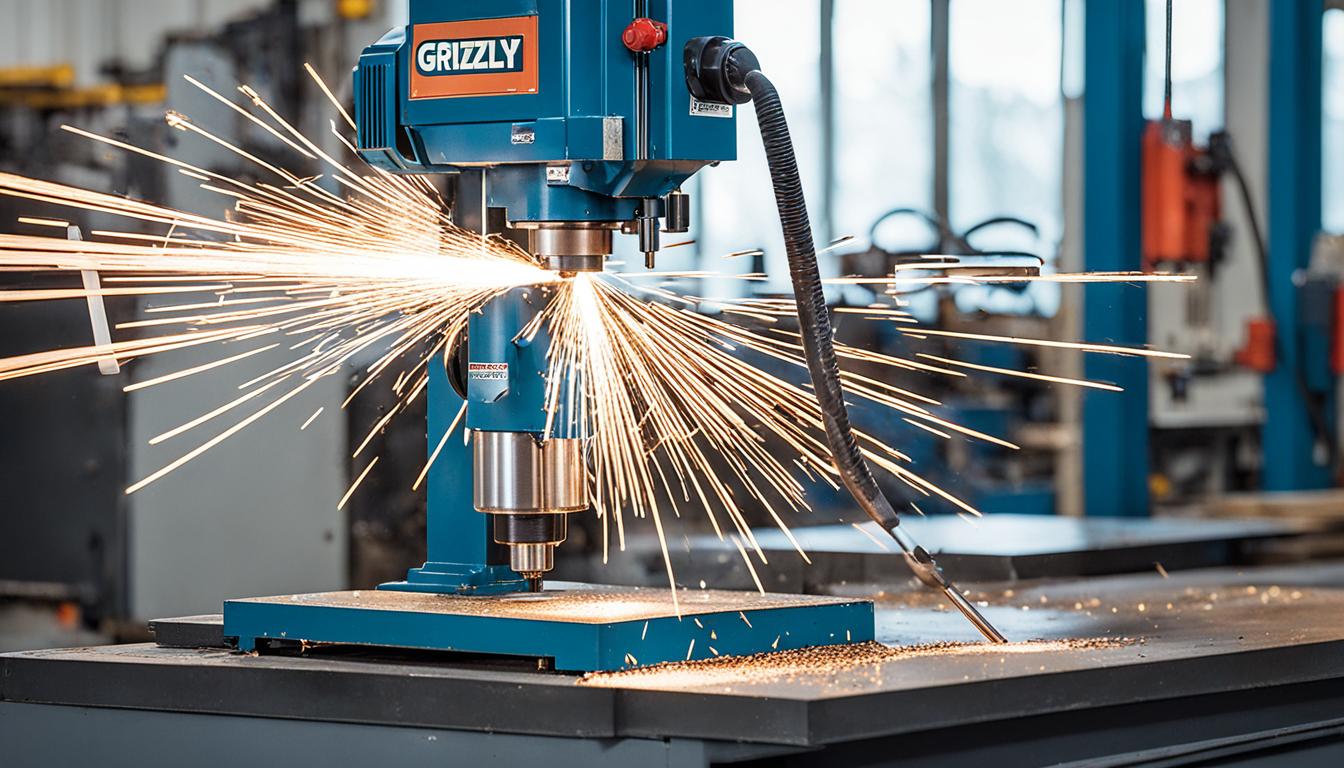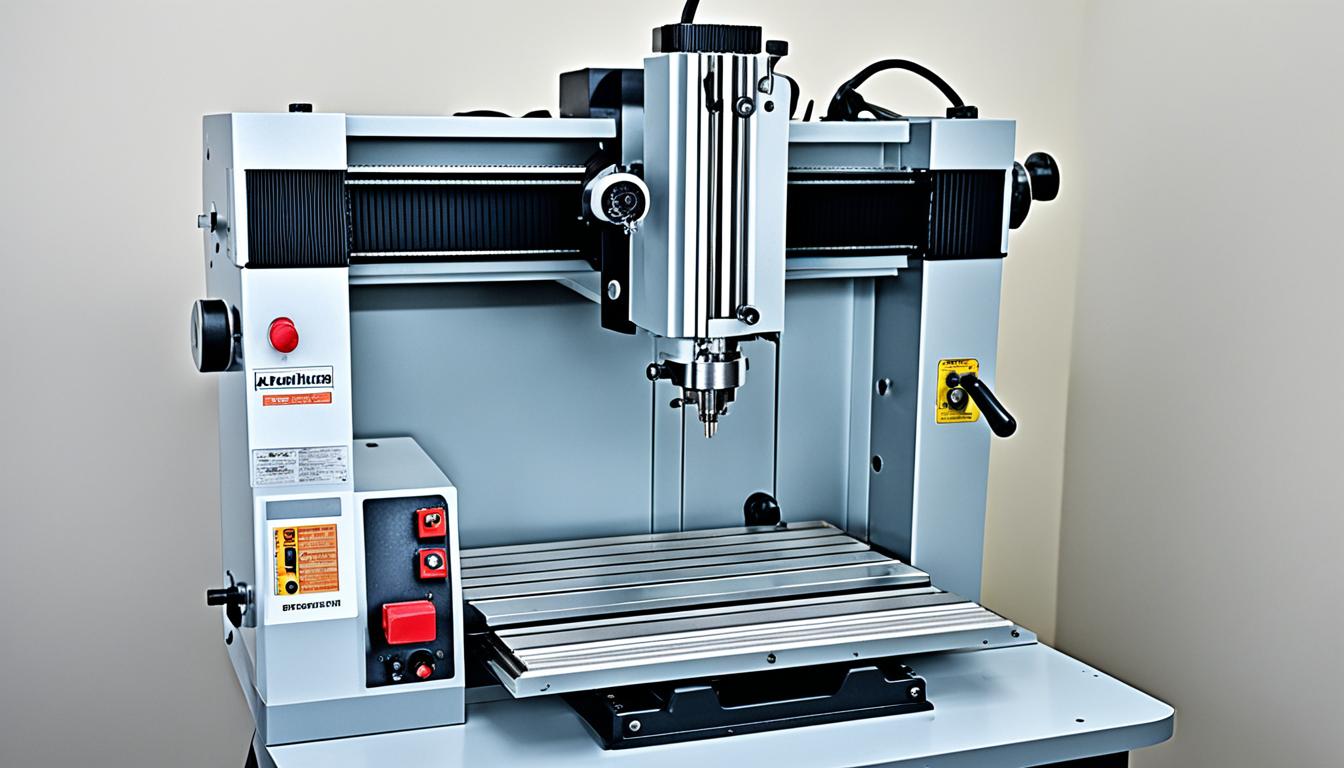To find the best hobby milling machine, consider factors such as size, power, precision, and versatility. Look for a machine with a sturdy construction, preferably made of cast iron or steel, to minimize vibration and ensure stability during operation. Opt for a model with variable speed control, allowing you to adjust the cutting speed for different materials and applications. A digital readout (DRO) system can greatly enhance accuracy and ease of use.
Evaluate the work envelope and table size to ensure they meet your project requirements. Popular options for hobbyists include benchtop mills like the Proxxon MF 70 for small-scale work, or more robust machines like the Grizzly G0704 for larger projects. Consider the availability of accessories and replacement parts, as well as the manufacturer’s reputation for customer support. Reading user reviews and comparing specifications across different models will help you make an informed decision based on your specific needs and budget constraints.
- Design: Decide between vertical or horizontal milling machines, depending on your specific requirements.
- Features: Look for machines with useful features like digital readouts and multiple axis movements for enhanced precision.
- Precision: CNC mills offer advanced automation and accuracy, making them ideal for precise milling tasks.
- Size: Determine whether you need a large industrial-sized machine or a compact mini mill for smaller projects.
- Tooling and Accessories: Ensure that the milling machine you choose has readily available tooling and accessories to support your work.
One of the top recommended brands for hobbyists and workshops in 2022 is Grizzly. Known for their quality and reliability, Grizzly offers a range of hobby milling machines that cater to different needs and budgets. Their machines are well-regarded for their performance and durability, making them a popular choice among hobbyists and professionals alike.
Key Takeaways
- Consider the design, features, precision, size, and availability of tooling and accessories when choosing a hobby milling machine.
- Grizzly is a recommended brand for hobbyists and workshops due to their quality and reliability.
- Take advantage of online reviews and expert recommendations to help you make an informed decision.
- Take into account your specific needs and budget when choosing the right milling machine for your home workshop.
- Investing in a high-quality milling machine will ensure accurate and precise results for your projects.
Top 4 Hobby Milling Machines in 2023
Choosing the right hobby milling machine is crucial for enthusiasts and DIYers looking for precision and versatility in their projects. To help you make an informed decision, we have compiled a list of the top four hobby milling machines for 2023.
1. Grizzly G8689 Mini Milling Machine
The Grizzly G8689 Mini Milling Machine is an excellent option for small parts and tools. With a 3/4-hp motor and the ability to handle milling tasks up to 1/2-inch drilling, 1/2-inch end mills, and 1-inch facing, it offers great flexibility. This compact machine features variable speed control, making it easy to use. With its capability to mill hardened steels, it is a reliable choice for precision cuts and small projects. Weighing 167 pounds, it is a compact and powerful machine.
2. JET 350017/JMD-15 Milling/Drilling Machine
The JET 350017/JMD-15 Milling/Drilling Machine is a lightweight and versatile option for hobbyists. It features a simple belt-driven drill that offers the abilities of a larger milling machine’s table for precise cuts. Equipped with a 1 HP motor and variable speed control, it can effortlessly work on tough materials, including hardened steel. This machine is rigorously tested and comes with a 3-year warranty, guaranteeing its durability. Weighing 260 pounds, it is suitable for small to medium-sized operations.
3. Grizzly G0704 Drill Mill with Stand
The Grizzly G0704 Drill Mill is a mini milling machine known for its versatility and precision. It features a 1-hp motor and can create small tools and parts, as well as work on complex shapes. This machine comes with its stand, adding convenience to your workshop. Its 15-inch swing, 11-inch head travel, and 2-inch spindle travel provide ample capacity for various milling tasks. Weighing 338 pounds, it is a solid choice for precision work.
4. [Brand/Model Name]
[Brief Description of the Fourth Hobby Milling Machine]
With these top hobby milling machines in 2023, you can take your projects to the next level. Consider your specific needs, such as size, power, and versatility, to choose the best option that aligns with your requirements and budget.
Grizzly G8689 Mini Milling Machine
The Grizzly G8689 Mini Milling Machine is a top choice for hobbyists and small workshops. With its powerful 3/4-hp motor, this machine can handle a wide range of milling tasks, including drilling, end milling, and facing. It can work with drilling bits up to 1/2-inch, end mills up to 1/2-inch, and can face materials up to 1-inch thick.
This mini milling machine is designed to be compact and easy to use. It features a variable speed control, allowing you to adjust the milling speed to suit your specific needs. Whether you’re working on soft materials or milling hardened steels, the Grizzly G8689 Mini Milling Machine delivers precision and efficiency.
Weighing in at 167 pounds, this machine is sturdy and reliable. It offers the precision necessary for small projects and precision cuts. The Grizzly G8689 Mini Milling Machine is an excellent choice for hobbyists and craftsmen who want to take their milling capabilities to the next level.
For a visual representation of the Grizzly G8689 Mini Milling Machine, refer to the image below:

JET 350017/JMD-15 Milling/Drilling Machine
The JET 350017/JMD-15 Milling/Drilling Machine is a lightweight and versatile option for your workshop. With its compact design, this machine offers the convenience of a smaller milling machine without sacrificing functionality. It features a simple belt-driven drill that allows for precise drilling and milling operations. The JET 350017/JMD-15 boasts a larger milling machine’s table, providing ample workspace for precision cuts and intricate projects.
Equipped with a powerful 1 HP motor, the JET 350017/JMD-15 can effortlessly handle tough materials like hardened steel. The variable speed control allows you to customize the milling and drilling operations to suit your specific needs. Whether you’re working on small-scale projects or medium-sized operations, this machine delivers reliable performance and consistent results.
| Key Features | Specifications |
|---|---|
|
|
Tested for high standards of operation, the JET 350017/JMD-15 Milling/Drilling Machine ensures durability and long-lasting performance. With its user-friendly design and reliable construction, this machine is a valuable addition to any workshop. Whether you’re a hobbyist or a professional, the JET 350017/JMD-15 provides the precision and versatility you need to bring your projects to life.
Grizzly G0704 Drill Mill with Stand
The Grizzly G0704 Drill Mill with Stand is a versatile and precise mini milling machine suitable for various workshop needs. Powered by a 1-hp motor, this machine is capable of creating small tools and parts, as well as working on complex shapes with ease.
One of the standout features of the Grizzly G0704 Drill Mill is its inclusion of a sturdy stand. This eliminates the hassle of finding a separate stand and allows for easy setup and use in your workshop.
With its 15-inch swing, 11-inch head travel, and 2-inch spindle travel, this machine offers ample capacity for a wide range of milling tasks. Whether you’re working on intricate designs or larger-scale projects, the Grizzly G0704 will meet your precision needs.

Weighing 338 pounds, the Grizzly G0704 Drill Mill with Stand provides stability and durability, ensuring long-lasting performance. This machine is a reliable choice for those who require precision work and value convenience in their workshop equipment.
Best Milling Machine Brands
When it comes to milling machines, several top brands stand out:
These brands have established a reputation for manufacturing high-quality milling machines that cater to the diverse needs of industries and hobbyists alike. Each brand offers a range of models with different features and specifications to suit various applications.
If you’re looking for a reliable and efficient milling machine, consider the following brands:
| Brand | Features | Price Range |
|---|---|---|
| Hurco | CNC control, advanced software, high precision | $20,000 – $250,000 |
| Haas | Wide range of models, durability, affordability | $15,000 – $300,000 |
| Bridgeport | Legendary reliability, variable speed options | $10,000 – $100,000 |
| Jet | Easy-to-use controls, solid construction | $5,000 – $20,000 |
| Grizzly | Great value for money, wide selection of models | $1,000 – $10,000 |
These brands have earned the trust of professionals and enthusiasts alike with their reliable performance and innovative design. Whether you’re a hobbyist or a seasoned professional, choosing a milling machine from one of these top brands ensures precision, durability, and customer satisfaction.
Investing in a milling machine from a reputable brand can significantly enhance your machining capabilities and streamline your production process. Take into account your specific needs and budget when selecting the best milling machine brand for your workshop.
In the next section, we will explore the best CNC milling machine on the market.
Best CNC Milling Machine
CNC milling machines are computer-controlled machines that offer high precision and automation. When it comes to choosing the best CNC milling machine, the JET CNC Vertical Turret Milling Machine (JTM-1050EVS2 CNC) stands out as the top choice. With a powerful 3 HP motor and a variable speed spindle, this machine delivers optimal performance for a wide range of applications.
The JET CNC Vertical Turret Milling Machine features a precision-ground spindle quill, ensuring maximum accuracy and efficiency. Whether you’re working on aerospace components or automotive parts, this CNC milling machine delivers exceptional results. Its advanced automation capabilities simplify complex milling tasks and streamline production processes.
Investing in the best CNC milling machine, like the JET CNC Vertical Turret Milling Machine, will enable your business to achieve high levels of precision and productivity. With its cutting-edge features and robust construction, this machine is the ideal choice for industries that demand superior performance and accuracy.
